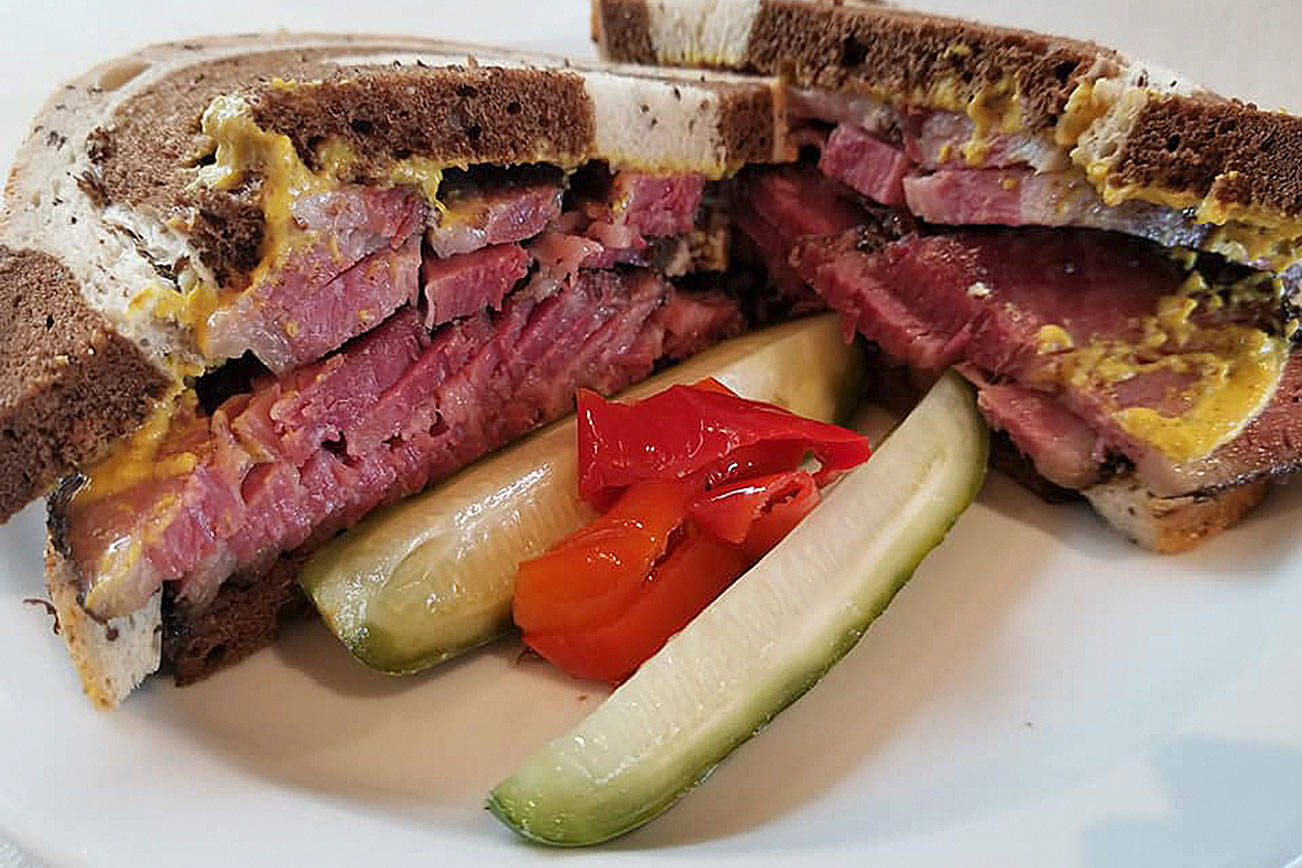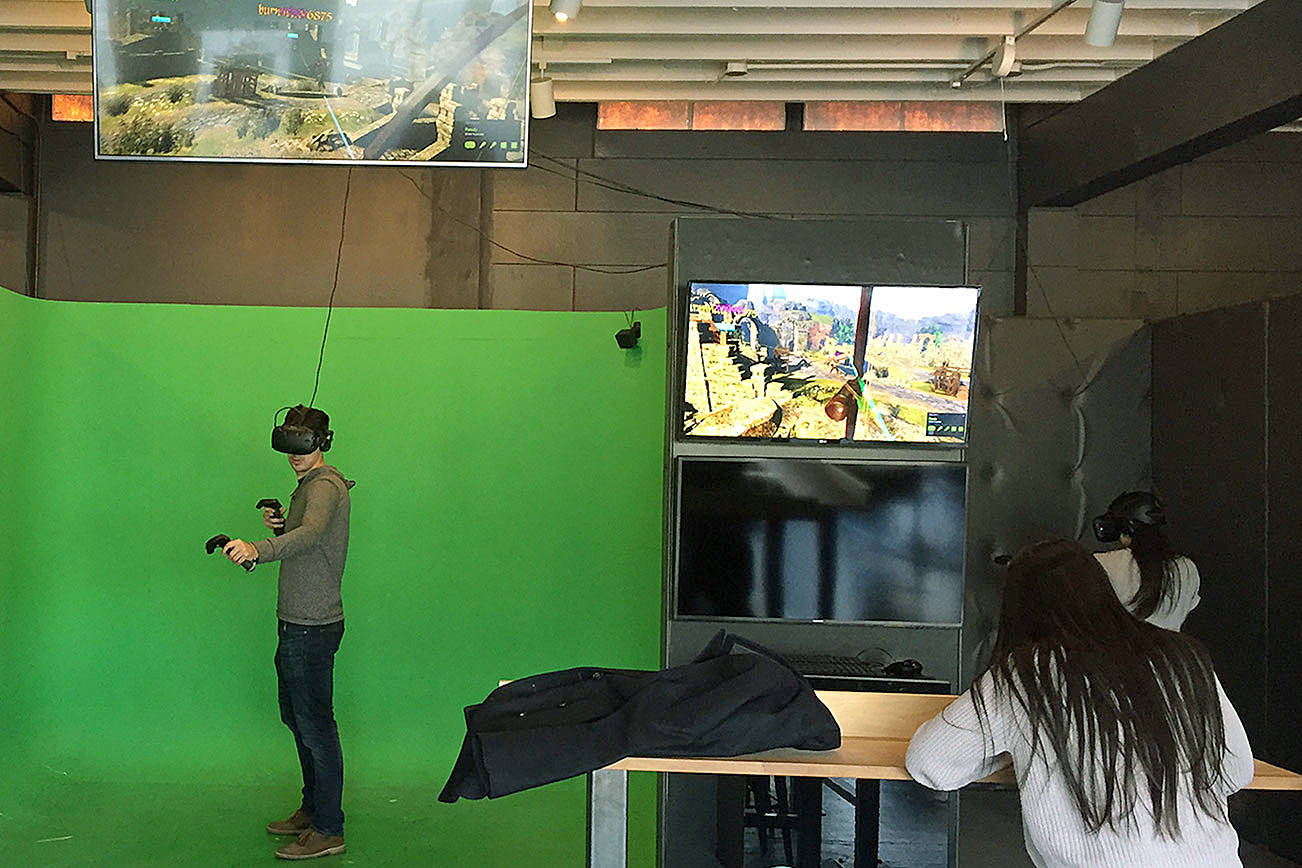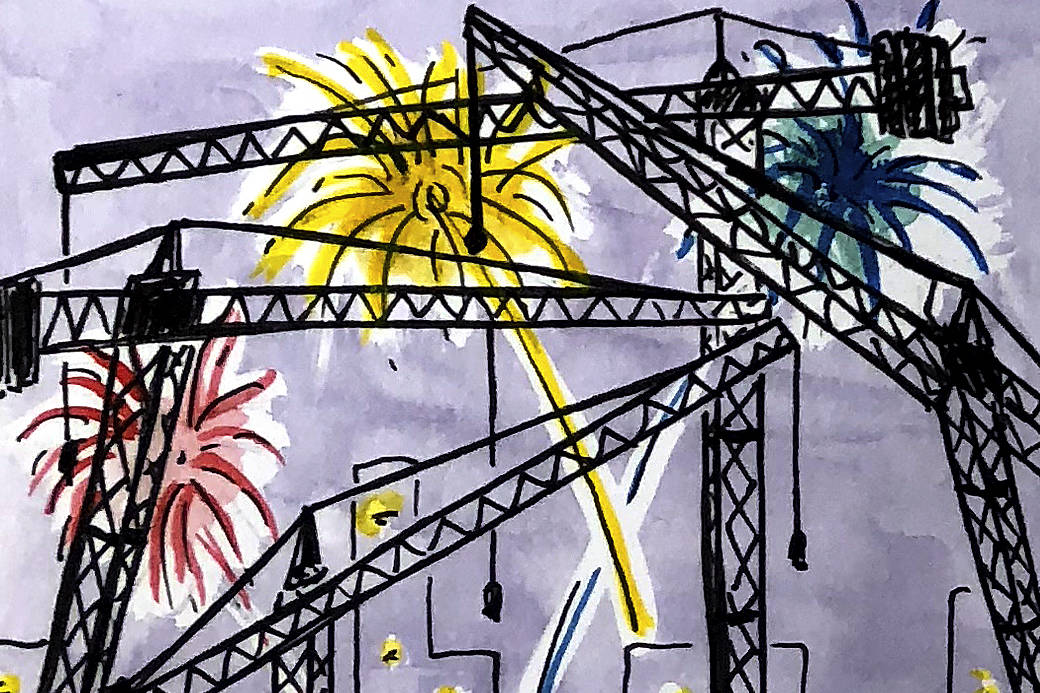As you drive east on Pacific Avenue through Olympia, Desire slowly emerges from behind an elevated, overgrown grass field. It sits in the middle of a large parking lot in a six-acre plot. The white blinds are all drawn, and the building is what might be described as hot pink. If you can’t tell that women are taking their clothes off inside, the giant white sign helps.
This is something of an historic site in Washington’s state capital. Though strip clubs have always been technically allowed in Olympia, location restrictions and red tape have long prevented any from opening, leaving residents only with nearby bikini baristas to sate their fleshly desires. But Olympia’s age of innocence is over.
At the beginning of the year, an application from Desire owner Levi Bussanich prompted a review of the Olympia adult entertainment ordinance enacted in 1997, the stated goal of which was “that criminal activity and antisocial activity not protected by the United States Constitution which is typically committed in conjunction with the operation of adult oriented businesses be prevented.” But there was nothing in the ordinance implicitly prohibiting Bussanich from adding a strip club to Desire, his 20-year-old adult video store, since strip clubs and nude dancing are protected forms of free speech.
Bussanich made the move for overt economic reasons. “The Internet has affected the rental and sales business, which has really died off since around 2008,” he says. “People are getting content online and it’s really hard to compete with that.” The move to live entertainment seems like a smart one; Desire is the only strip club for miles around.
Because it’s situated in a giant six-acre plot, Desire easily meets all the distance requirements that keep such establishments away from schools and parks and places of worship. It’s difficult to find many locations in Olympia that meet all such requirements, meaning that Desire will likely be the lone strip club for a while.
Upon entering Desire, one expects a sultry, automated voice to whisper, “desire,” but no such luck. Patrons immediately find themselves at a crossroads of erotic voyeurism. Straight ahead is the video and sex toy store, recently reduced in size to make room for the newly added strip club. Hundreds of videos sit underneath bright fluorescents lights, slightly offset by a five-foot blow-up penis hanging on the wall.
Around the corner is a long line of 20 video booths. Though these booths regularly get about 70 customers a day, they’ve died down significantly since the strip club was added in April. Inside the cabaret, bright tubes of red light outline the mirrors behind the moderately-sized stage, with a single pole in the middle. Municipal code mandates there be a physical barrier six feet from the stage “to keep patrons from attacking people, I guess,” says Bussanich. “We put a bar top on it and seating at it. It’s actually worked really well.”
The strip club can hold 108 people, and Bussanich employs upwards of 50 dancers, with 10 to 15 working over the course of a weekend evening. When there’s not much of a crowd, the dancers supportively cheer and clap for each other, like musicians at a sparsely attended open mic. The encouragements, however, are a little different. “You’re so fucking cute!” yells one dancer. “I fucking love your tits!” says another.
Desire is still clearly a work in progress, and will soon have an adjacent bar operating as a separate business, since state law doesn’t allow alcohol in strip clubs.
Drinking is not the primary concern for the most vocal critics of the club, chief amongst them Washington Engage, an Olympia-based advocacy group which seeks to prevent sex and labor trafficking in Washington State and which sought a temporary moratorium on application approvals.
“Strip clubs are a known hotbed for human trafficking,” says Rose Gundersen, the executive director and cofounder. “The truth is that no dancer can make enough money without being forced to go beyond dancing.”
The Olympia City Council did not take up the moratorium, but, at the end of February, it did vote to increase fees and the time allotted to review applications.
“I’m not saying they shouldn’t be allowed to open,” says Gundersen, “but they should look at a lot more facts and find ways to maybe make it safe for the dancers.” She hoped the city would post human trafficking warnings and hotline numbers in the club, do more stringent screening of employees, offer training on human trafficking, and hand out stronger consequences for any violation of the ordinance.
Beyond some delays with his application, Bussanich says he hasn’t met with much resistance in the community. “The only people that I’ve heard of having a problem are the group that watches human trafficking, and I agree. I’m against human trafficking, too. Never been involved with it, and there’s no chance of it happening here in Olympia, at my club especially. But I understand that people get passionate about their feelings. I understand that. I understand both sides of it.”
Since opening in April, Bussanich has seen upwards of 300 customers each weekend, and regularly gets about 20 resumes a day. He plans to expand Desire in the coming months.
Though the legislative session has ended, I ask Bussanich if any politicians have come in yet.
“Not that we know of,” he says. “But our door’s open to them.”
news@seattleweekly.com








